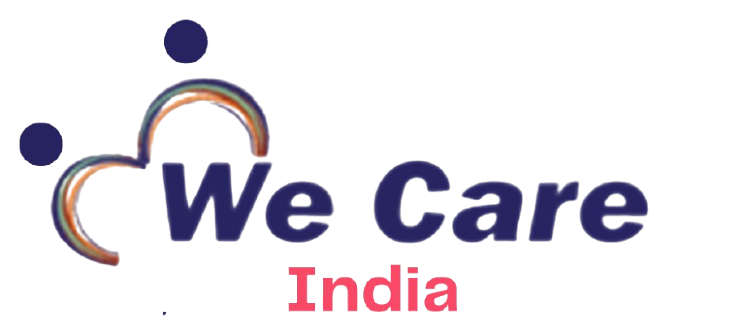
Personalized care with a warm interaction with the patient
- Achieving outstanding success rates through our dedicated care approach.
- Equipped with the latest technology to ensure optimal treatment outcomes.
- Our expert team provides exceptional healthcare with experience.
- Offering 24/7 assistance for your health needs and concerns.
- Providing quality treatment at reasonable costs for every patient.
- Contact us Email ID:[email protected]
- Call us: +91 9029304141
How it’s done
As with standard IVF treatment, the woman will be given fertility drugs to stimulate her ovaries to develop several mature eggs for fertilisation. (Women normally release only one egg a month.) Once the eggs are ready, the man and the woman undergo separate procedures.
The man may produce a sperm sample himself by masturbating into a cup, but if there is no sperm in his semen, doctors can retrieve sperm from the man. In most cases the sperm is extracted with a needle from a testicle under anaesthetic.
If this doesn’t remove enough sperm, the doctor will take a biopsy of testicular tissue, which sometimes has sperm attached. This procedure is called testicular sperm extraction (TESE). It’s sometimes done before the treatment cycle begins, and the retrieved sperms are frozen.
After giving the woman a local anaesthetic, the doctor will remove her eggs using a fine, hollow needle. (An ultrasound helps the doctor locate the eggs.) A lab technician then isolates individual sperm and injects them into individual eggs. Two days later the fertilised eggs become balls of cells called embryos.
The procedure then follows the same steps as in IVF. The doctor transplants one or two embryos into the woman’s uterus through her cervix using a thin catheter. A maximum of three embryos can be transferred if the woman is over 40 years old and is using her own eggs, one or two if she is using donor eggs. Extra embryos, if there are any, may be frozen in case this cycle isn’t successful.
One embryo may attach to the uterine wall and continue to grow. After about two weeks, the woman can take a pregnancy test.
ICSI or Intracytoplasmic sperm Injection is offered to a couple when the semen sample does not fall within ‘normal’ parameters. This can be due to : –
- Oligozoospermia – Low number of sperm in the ejaculate
- Athenzoospermia – Poor progression or movement of the sperm
- Teratzoospemia – High numbers of abnormally formed sperm
Other couples that might be offered ICSI are those who have unexplained fertility, who have had an IVF cycle which has resulted in low or no fertilisation.
What Can ICSI Help Treat?
There are a variety of underlying fertility conditions that ICSI may help treat. The specific male fertility problems that ICSI is used to treat are : –
- low sperm count
- low sperm motility
- total absence of sperm in the semen
- damaged or absent vas deferens
- retrograde ejaculation
- irreversible vasectomy
- immunological factors (such as a very high white blood cell count in the semen)
- other conditions that prevent the fertilisation of the egg.
Men who have been diagnosed with testicular cancer may also want to consider freezing a semen sample prior to treatment since this sample can later be used in ICSI.
Effectiveness of ICSI Treatment in india
ICSI is currently the most successful treatment for male infertility, with fertilisation rates of 60%-70% depending on quality of the sperm used. However, once the egg is fertilised, the success rates of ICSI in conjunction with IVF remain the same as conventional IVF a 20%-25% chance of live birth. This is because overall effectiveness still depends on the fertilised egg developing properly in addition to successful implantation into the uterus. In some cases, assisted hatching may be used to increase the chances of implantation.
ICSI Risks
One concern about ICSI is the possible health impact of this procedure on any resulting children. ICSI is often used with men who have poor sperm quality, and the method entails using any sperm to fertilise the egg as opposed to the strongest one (which is what happens in nature). Because it is possible that a weaker, poorer quality sperm might be used in ICSI, congenital defects may be passed on at a higher rate than naturally or with
other methods of IVF Treatment in india
Also, because ICSI is a relatively new procedure, the long-term effects for resulting children have yet to be properly analyzed. So far, no studies have shown any increased chance of physical, developmental, or congenital problems in children conceived using ICSI.
Read Also :-
- Myringotomy Surgery in India – Effective Treatment for Ear Conditions
- Fertility Treatment in India – Advanced IVF, IUI, and Surrogacy Solutions
- High-Intensity Focused Ultrasound (HIFU) in India – Non-Surgical Lifting Treatment
- Neonatal Surgery in India – Expert Care for Newborns
- MVR Surgery in India – Advanced Mitral Valve Replacement for Heart Health
- Nephrolithotomy for Kidney Stone Removal in India – Expert Surgical Care
